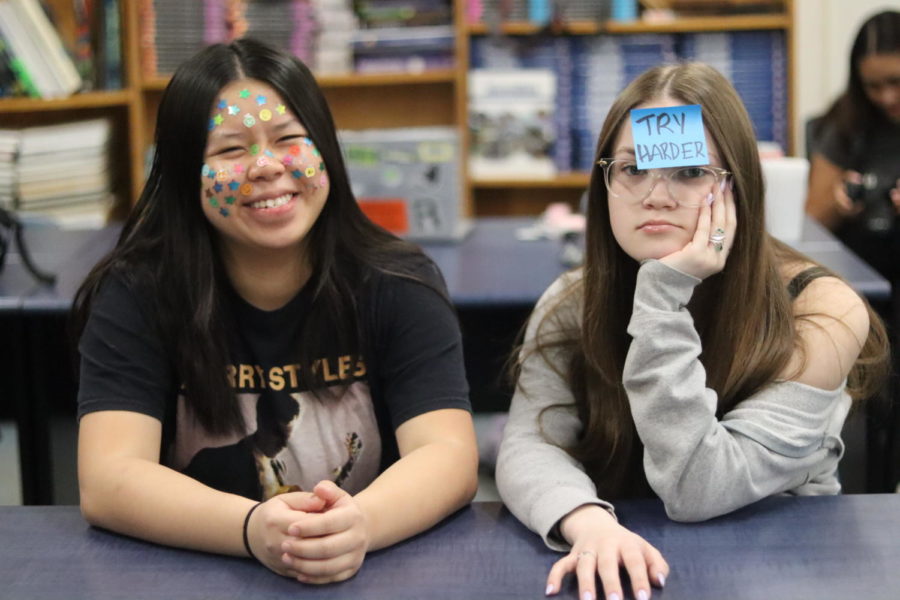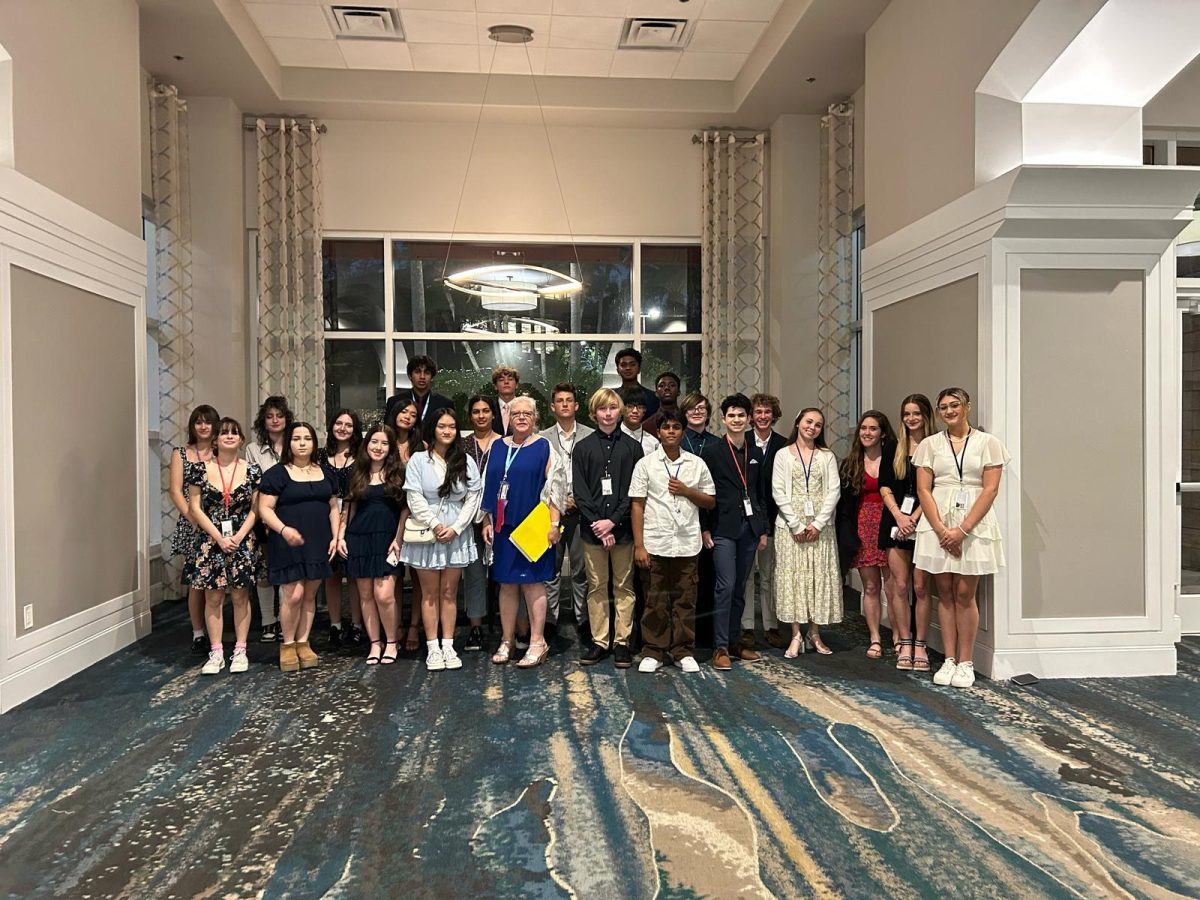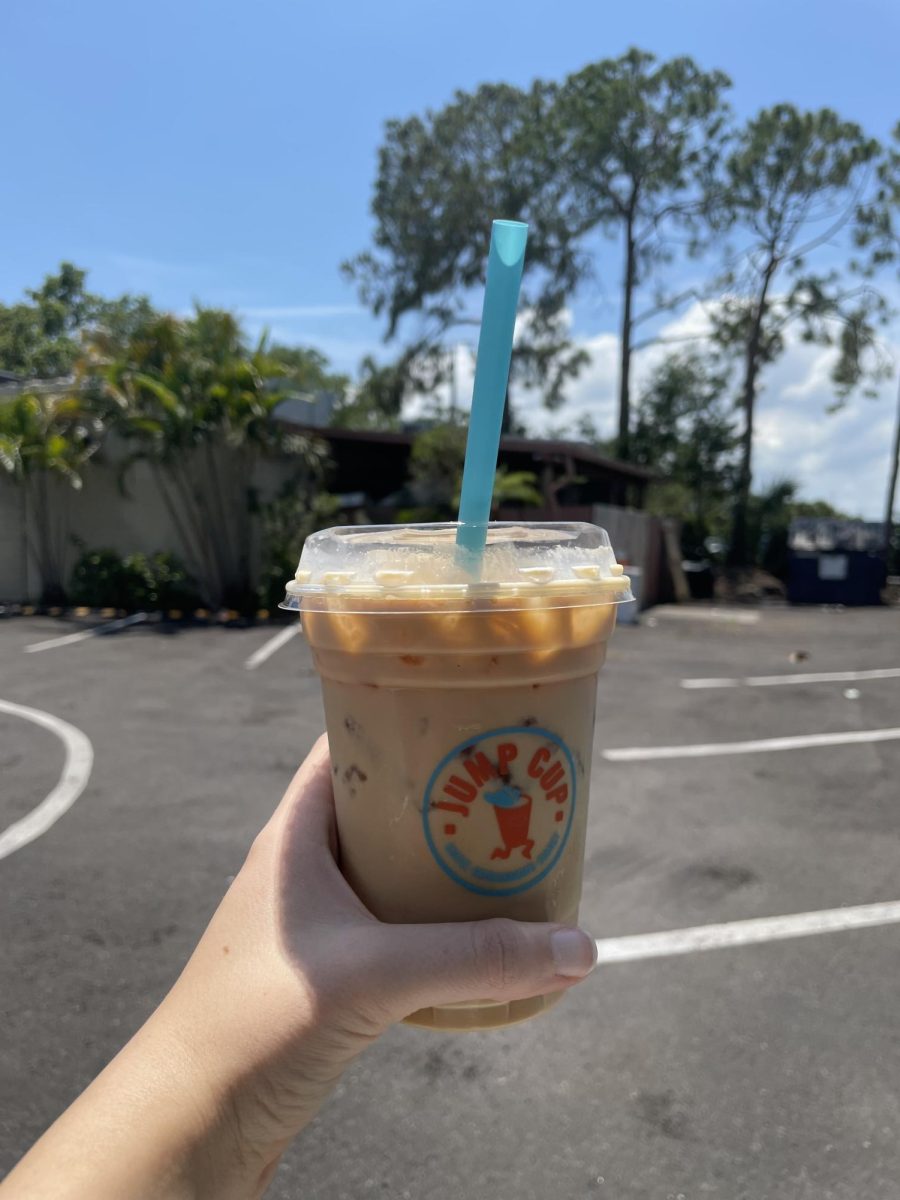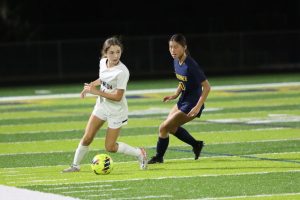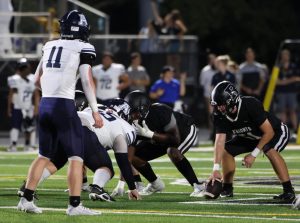Editorial: IB Supremacy Reigns Over Robinson
IB, you be, we all be separated.
Photo Zoe Thaxton
Cecilia Cheng (’24) smiles while Keirra McGoldrick (’24) frowns as they model the differences between how IB and traditional students feel in school. Cheng’s face is covered in stars and A+ stickers while McGoldrick only has a sticky note that says “TRY HARDER.”
February 8, 2023
With the intercoms broken in the history hall, Traditional Social Studies teacher Tomas Montero walked classroom to classroom calling seniors for an assembly. It covered career options beyond high school, in particular trade schools. He entered the Journalism classroom during a story pitch to inform the seniors in the room to make their way down to the auditorium.
IB senior editors led the pitch with the traditional senior editor and staffers by their side. They readied to pass the torch to an underclassmen editor to complete stories for everyone until Adviser Nancy Webster asked, “Isn’t it just for traditional?”
“Just traditional…?”
Confused, Montero returned to the hall to call the office for confirmation. He hadn’t been informed of the small detail. All seniors meant all seniors… right?
No.
Traditional seniors only.
Only traditional seniors were called for a discussion on trade school and other options besides a university.
Trade schools specialize their education to focus on a specific skill. Think, an electrician, plumber or cosmetologist. Despite their necessity in society and ability to produce an incredible wage, these blue collared jobs are considered lowly. They don’t require that oh-so-valued college degree.
Not to mention the financial aid discussion, as if only traditional students need that aid. Lack of money doesn’t discriminate between the two programs. All teenagers need that discussion. What makes it different for one group to get the talk and not the others?
Why traditional and not IB?
To only call one group of students for a rather important discussion is wrong.
Another instance was at the beginning of the school year when freshmen were called during the school day to the gym. Freshmen had a team bonding experience to get to know the others in their grade. Being their first year in high school, what better way to acculturate to the Robinson community? However, this group was a little small and inclusive to a specific group of freshmen.
IB freshmen only.
Only IB freshmen were called to meet and bond with their peers.
Why IB and not traditional?
To call only one group of students for a bonding moment when all could be involved is wrong.
On a separate occasion, at the IB Open House, a parent of a potential IB student asked Co-EIC Juno Le if traditional and IB were separated into two parts of campus. Maybe it was an innocent question to understand the school, as they weren’t familiar with the campus, but why did it matter?
Would it be a problem if they weren’t? Was there shame in intermingling?
Enter the mindset deemed: The IB Supremacy—a school divided between a “traditional” high school program and the International Baccalaureate program where the IB side is favored. It’s also the thinking among those in the favored group that they are superior and receive special treatment for being in this “elite” program.
Before the introduction of the IB program during the 2006-2007 school year, Robinson’s reputation proceeded them as the “bad” school in South Tampa. The Rembrandt Garden Public Housing Complex, heavily criticized for being a criminal and troubled area, was just across the street (where the makeshift student parking is currently). With its tearing down in 2005 for numerous reasons, a reputation reboot was in order. The IB program provided just that and allowed for more students to fill the underpopulated school.
The IB program’s supremacy doesn’t stem from its numbers though. They are the smallest group at the school. In the 2022-2023 enrollment, there were a total of 119 seniors, 93 juniors, 103 sophomores and 136 freshmen, rounding these numbers to 451 total IB students. Robinson’s total student body count: 1,452 students from ninth-12th grade.
It’s understandable that the two programs have different classes, given the rigor in the IB program classes, but there’s little intermingling between students at all. Even when in electives like band, orchestra, culinary, journalism and other AP classes, sometimes, there’s distaste looming in the air from both sides. Some IB students view their traditional peers as “lazy” or not smart enough while the latter view the IB students as “pompous” “know-it-alls” or even “rule-dodgers.”
The separation created division among the school which is heavily dictated by the IB supremacy mentality. This complex of superiority bleeds into the school hierarchy. Leadership remains majorly in the hands of IB students. 19 of band’s leadership and 5 of orchestra are in IB. The Journalism program cannot count itself out from these numbers as 6 out of 10 editors on the editorial board for the Knight Writers are in IB (but yearbook is completely traditionally run). These could be purely coincidental as many of the elective teachers choose leadership based on a student’s commitment, and many IB students jump on this opportunity to be involved.
SGA’s leadership has been a glaring eye of the IB Supremacy amongst the traditional students. As of right now, the four main upperclassmen leadership positions are held by IB students and many traditional students feel they are not heard in their student government. It is not the fault of those in charge, merely the system that upholds it. Luckily, the organization has acknowledged this and has an idea to split its leadership between the two programs so all voices can be heard.
Changes have started to be noticed across campus. The two programs cross paths numerous times throughout the day, no longer just before the first and final bell. Gone are IB’s special club days, deemed ACCA Days, where students remained in homeroom all day and got to treat their day like their study halls and go to clubs as they pleased while traditional students still went to class.
It’s just the start of dismantling the IB supremacy embedded into the school. IB supremacy mentality needs to be torn down at the root. Robinson needs to be a whole school community, not two fractured ones.

